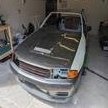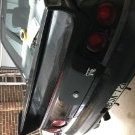RB26 Turbo Advice Needed
Announcements
-
Similar Content
-
Latest Posts
-
Entry list updated and open to the public
-
Hi alll im new here. I've been seaching here for days and can't find what I'm looking for so I hope someone has some knowledge they can share. In looking to +t my na neo 34 sedan. I've purchased the complete turbo setup off a late 98 (series 2) rwd automatic stagea. So i have the hot and cold side, ecu,engine harness and the auto transmission. I realy want to keep the car a nice cruiser that's why I want to keep it auto. I'm hoping someone here can confirm I can use all this in my 34. Or point me in the right direction if I need to modify the engine harness to plug into the 34 body harness. Any help would be great. Thanks guys.
-
I'd be using your approach if I had the light. Some measuring, get some vernier calipers, measure, draw, make another one as a slightly smaller hole and start cutting.
-
Hi guys really sorry if its a silly question, but im trying to figure out if a r33 gtr front reinforcement bar will fit on a r33 gtst series 1. Need it for road worthy but also wanted to get the gtr one as I wont need to cut the reo when I upgrade my fmic apparently? TIA!!
-








Recommended Posts
Create an account or sign in to comment
You need to be a member in order to leave a comment
Create an account
Sign up for a new account in our community. It's easy!
Register a new accountSign in
Already have an account? Sign in here.
Sign In Now